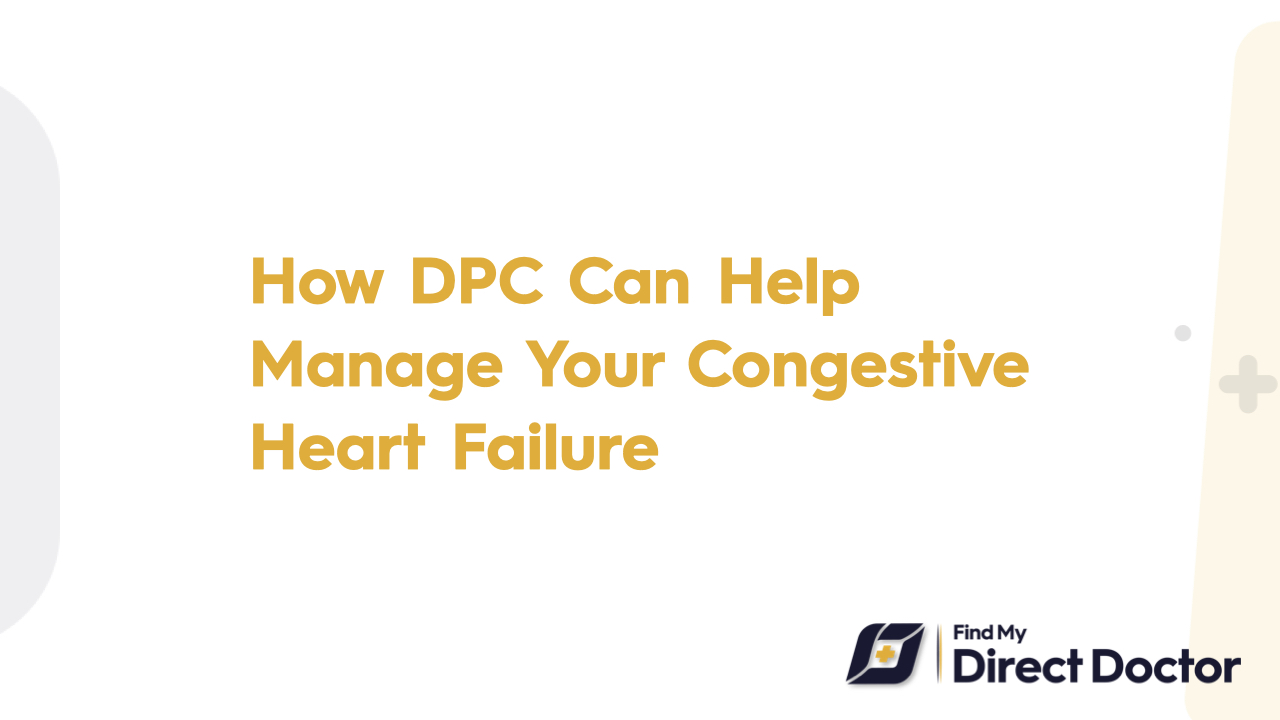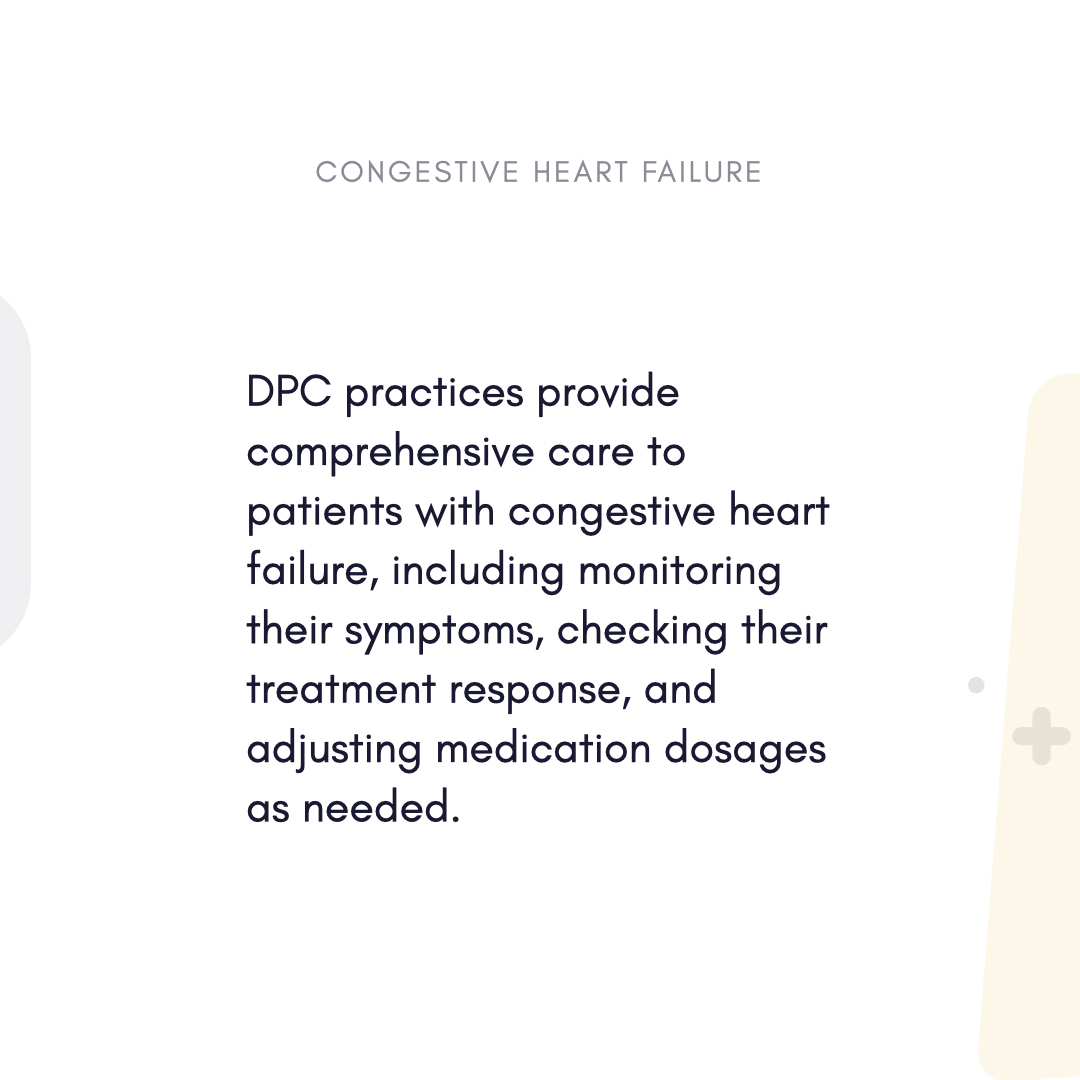Congestive Heart Failure (CHF) and Direct Primary Care (DPC): Personalized, Proactive Care for Better Outcomes
A chronic illness known as congestive heart failure (CHF), in which the heart struggles to pump blood effectively, causes crippling symptoms including shortness of breath, fluid retention, and tiredness. To prevent hospitalizations and enhance quality of life, good management calls for ongoing monitoring, medication accuracy, and lifestyle changes. Direct Primary Care (DPC)—a membership-based model stressing accessibility and continuity—offers a patient-centered approach to stabilize CHF, lower complications, and empower long-term wellness.

How DPC Improves CHF Management (Monitoring & Coordination)
- Regular inspections: Track weight, edema, vital signs (BP, oxygen) via telehealth/in-person visits. Adjust ACE inhibitors/diuretics using home device data.
- Lab management: Routine blood tests (BNP, electrolytes, renal function) guide medication changes to reduce kidney strain/hypotension.
- Medication optimization: Tailor SGLT2 inhibitors, ARNIs (sacubitril/valsartan), or beta-blockers based on tolerance/efficacy.
- Cost-effective care: Negotiated medication prices lower out-of-pocket costs for expensive treatments.
- Multidisciplinary coordination: Partner with cardiologists, dietitians, and palliative teams for advanced interventions (implants, hospice).
Customized CHF Management (Preventive & Self-Care)
- Lifestyle plans: Low-sodium diets, fluid limits, and safe exercise regimens tailored to cardiac capacity.
- Comorbidity control: Tightly manage diabetes, hypertension, or sleep apnea to slow CHF progression.
- Patient education: Teach medication adherence and warning signs (worsening dyspnea) per AHA guidelines.
- Mental health: Prescribe SSRIs for depression/anxiety linked to chronic illness.
- Advanced planning: Align treatment goals with patient values, including palliative options.
Why DPC Stands Out for CHF Patients (Key Benefits)
- Accessibility: Same-day visits address acute symptoms (sudden weight gain) to prevent ER trips.
- Continuity: A trusted provider adjusts treatments swiftly, reducing hospital readmissions.
- Holistic focus: Combines medical, dietary, and emotional support for comprehensive care.
Limitations (Important Considerations)
- DPC does not replace insurance for advanced therapies (LVADs, transplants), specialists, or hospitalizations.
- Severe decompensation (e.g., pulmonary edema) requires emergency care beyond DPC’s scope.
Final Notes (Proactive, Patient-Centered Care)
- DPC transforms fragmented CHF care into a cohesive plan emphasizing prevention, personalization, and collaboration.
- Aligns with AHA/ACP guidelines through regular monitoring, early intervention, and patient education.
- Reduces administrative barriers to focus on root causes (diet, comorbidities) and slow disease progression.
- Offers a committed ally for long-term stability, prioritizing quality of life over crisis management.






